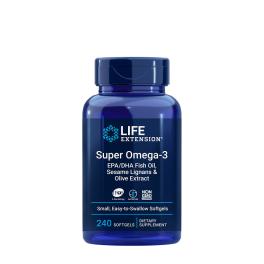What are Omega-3 capsules good for?
Fish oil i.e. Omega-3s, healthy fats. Perhaps if I were to get on the number four-six tram before eight in the morning, I would be hard pressed to find anyone who hasn’t tried fish oil. As well as being well known, it’s a hugely researched nutritional supplement. Studies (listed below) have identified more than 20 different benefits, of which only one is considered clinically relevant by the scientific community.

The broad health-promoting influence of Omega-3 fish oil is therefore proven, but it may have a greater effect of certain biological processes. At the begining of this article, we will first review al the proven benefits. Finally, why is GAL fish oil of outstanding quality?
WHAT IS OMEGA-3 FISH OIL IS GOOD FOR?
Before we answer this important question, let’s take a look at what fish oil is?
The most surprising piece of information about Omega-3 fish oil is that it is – drum roll – the collective name for the super-healthy fat extracted from freshwater and marine (but usually the latter) fish. Update: there are now vegan Omega-3 products available.
The term Omega-3 fish oil refers to three polyunsaturated fatty acids. By name:
- EPA: eicosapentaenoic acid
- DHA: docosahexaenoic acid
- ALA: alpha-linolenic acid
Okay-okay, that sounded a bit like alien talk, didn’t it?! To understand omega-3 fatty acids, we need to know that fats (fatty acids) from food can be divided into two main groups:
- Saturated fats have a more „rigid” (stiffer) structure. In other words, most sturated fats are more prone to deposition in the vascular wall than unsaturated fatty acids. Saturated fatty acids thus increase the cholesterol levels in the cholesterol that transports them and increase the risk of atherosclerosis, and may also have inflammatory effects. Although not all saturated fats are unhealthy, just think of MCT oil. Furthermore, saturated fat consumption is most problematic in high doses. The main sources of saturated fat are animal food sources: fatty meats are high in saturated fat – i.e. red meats (and products made from them: sausages, salami, etc.) and bacon do not have the right fatty acid profile. Fish, on the other hand, has an excellent fatty acid profile. Omega-3 rich marine finfish such as: salmon, mackerel, anchoives, sardines, etc. stand out.
- Unsaturated fats: they have a much looser structure. They can be monounsaturated or polyunsaturated. Chemistry class: this refers to the double bond in their structure (this is what makes them looser). If there is more than one double bond in the unsaturated fatty acid, they are called polyunsaturated fatty acids. Hence: the more double bonds there are, the looser the structure of the fatty acid – i.e. the less likely it is to stick to the vessel wall.
It is important to note that this is only one function of fatty acids. Fats are incorporated into the cell wall, where they perform a variety of functions, from stimulus transmission to membrane fluidity. Further more, fatty acids function as precursors for many hormones. It’s therefore not possible to say that saturated fatty acids equate to health. Consider the powerful inflammatory (and therefore highly unhealthy) quadruple unsaturated (!!) fatty acid: arachidonic acid. Because our body’s main inflammatory enzimes use arachidonic acid to make the hormones responsible for pain and inflammation, i.e. prostaglandins.
So Omega 3 fish oil stands for three different but loosely structured and therefore (also) super-healthy (from food) fats. Now that we understand this, can we clarify what Omega 3 fish oil is good for?
The scientifically supported effects of Omega 3 fish oil include:
- Prevention of cardiovascular diseases1-4.
- May reduce high triglyceride levels5.
- It can help manage type 2 diabetes. (It should be added that Omega 3 is worthless if your diet is not right)1.
- Prevention of cancer and alleviation of complications of cancer treatment1,4,6,7,18,19.
- Preventing and reducing the progression of Alzheimer’s disease and demetia1,22-24.
- Relieving symptoms of depression1.
- Stimulating visual and whole brain development. This is particularly important in children and is also highly relevant in adult neurodegeneration1,25-27.
- Maintaining childhood and foetal health; mainly due to the anti-inflammatory and cell wall building properties of Omega 3 fish oil. Cell wall health is essential for healthy cell vision1.
- Enhanching the effect of prebiotics. Also associated with anti-inflammatory effects. With lower cellular inflammation, fewer micro-organisms are destroyed. So, like, prebiotics, Omega 3 can help to keep gut flora healthy8. For more on the role of inflammation in our bodies, see the end of this article.
- In heart failure, it can reduce the chance of hospital admission and the incidence of death3,9.
- Vertebral injuries; treating the symptoms of disc-degeneration or herniated discs. Omega-3 fish oil has been associated with anti-inflammatory and therefore analgesic effects. This is because the inflammatory pathways coincide with the pathways responsible for the sensation of pain10.
- It can reduce the symptoms of ADHD11,12.
- May reduce symptoms of maternity depression13.
- It can provide relief for people suffering from menopausal hot flushes14.
- May reduce pain in people with rheumatoid arthritis1,4.
- May reduce asthma symptoms4,14.
- It can bring relief for people with periodontitis1.
- May reduce the frequency of epileptic seizures or the seizure threshold15,16.
- May reduce the extent or symptoms of nerve damage associated with diabetes2,17.
- They can relive pain in people with menstrual cramps20.
- It may provide relief in patients with non-alcohol induced fatty liver. Specifically, it may reduce the degree of fatty liver21.
So as we have seen, Omega 3 fish oil can present a full arsenal of weapons to protect our health, but the extent of these benefits is questionable. In other words, there is no doubt that Omega 3s work, but which of their effects are the most significant? Well, we’ll look for the answer to that, but first let’s look at why fish oil stands out in terms of protecting our overall health?

FISH OIL AS VITAMIN H!
As a healthy fat, its effects extend to every cell in our body, which is why it can be called a general health-promoting agent. Although it can only do this if the cell wall it is incorporated into can remain healthy. And for that you need a lot of Omega 3 fish oil!
You will recall that I wrote earlier that one of the unsaturated fatty acids that is supposed to be healthy because of its unsaturated nature is not. That inflammatory fatty acid is arachidonic acid. Arachidonic acid is considered an Omega 6 fatty acid.
There is growing evidence that the ratio of Omega 6 to Omega 3 circulating in the blood, as well as the ratio of arachidonic acid to EPA (one of the Omega 3 fatty acids), may be predictive of a person’s overall health25-33.
Based on the opinions adopted55,56:
- 1:1-4:1 Omega 6/Omega 3 ratio is considered good.
- 1:1-5:1 arachidonic acid/EPA ratio is considered good.
In contrast, the average person consumes 20:1 Omega 6/Omega 3. That is nearly six times worse than what is needed to maintain overall health.
Tests are now available to check the fatty acid profile in the blood. The test is sent abroad and my experience with it is that the results are as follows:
- You don’t eat Omega 3 and you eat a lot of animal fat. The Omega 6/Omega 3 ratio can range from 20:1 to 40:1.
- You consume Omega 3s, but you eat a lot of animal fat. Can range from 10:1 to 25:1.
- You consume Omega 3s and eat a little animal fat. Can range from 5:1 to 15:1.
- You’re getting the right amount of Omega 3s (see later), and you’re eating less animal fat. The ratios will be good, so somewhere between 2:1 and 5:1.
It’s important to note that the numbers above are based on my experience with blood tests, but are not scientifically proven data. Although experts in the field expect to find similar ratios, the results have not been bundled and published as clinical research.
OMEGA 3
If I have to single out one Omega 3, it would definitely be in liquid form. This is because one capsule of Omega 3 fish oil is not enough and it would be worth dosing according to body weight, as a 20 kg child does not eat as much as a 90 kg adult – meaning that a child does not need to compensate for as much ’bad fat intake’ as an adult.
The dosage for liquid fish oil is 0.15 ml * kilogram of body weight, which is 4.5 ml for a child weighing 30 kg. For an adult weighing 80 kg: 12 ml. This dosage method allows Omega 3 fish oil to be administered regardless of age.

WHAT CAN WE EXPECT FROM OMEGA-3 FISH OIL?
We have clarified the effects that Omega 3 fish oil can have. We’ve clarified the dosage of Omega 3 fish oil, now we just need to know which of the many effects of the sea is the most effective. We will now try to highlight the four „strongest” effects at the end of this article.
1. Blood fat reducing properties
The only FDA-reported effect of omega 3 fish oil is its ability to lower blood fat (i.e. tryglicerides)34.
Its additional cardiovascular disease-preventing effects do not fall into the category of „substantial scientific consensus”, but there is „credible evidence” for its effectiveness35.
To lower tryglicerides, a doctor’s consultation is essential when using statin therapy, as DHA in it can interact with statins to lower LDL cholesterol to very low levels. In case of therapy with high cholesterol.
The possible mechanisms behind triglyceride lowering are:
- Omega 3 fish oil can lower the levels of cholesterol-producing enzymes in the nucleus36,37.
- Omega-3 fish oil can stimulate the process of beta-oxidation, the process of energy production from the breakdown of fats. So Omega 3 fish oil causes the body to make better use of fats and they circulate less in the bloodstream38,39.
- Fish oil can lower your body’s LDL („bad”) cholesterol levels. LDL levels are proportional to the triglyceride levels circulating in the blood. This is because cholesterol molecules carry fat away from the blood.
2. Cardiovascular disease (and diabetes) prevention
The body fat lowering effects go hand in hand with the fact that Omega-2 will also help prevent other cardiovascular problems. However, as we have just read, the FDA has not been able to give a clear opinion on its efficacy.
The cardiovascular effects of Omega 3 fish oil are largely related to the anti-inflammatory effects of Omega 3. Poisons such as smoking, alcohol, obesity, high blood pressure or high LDL cholesterol also „damage” our cardiovascular system. Recovery from this involves inflammation, but inflammation is only needed to a certain extent for healing to take place uncontrolled inflammation also has damaging effects. Therefore, if damage and thus inflammation becomes too great it increases the risk of atheroslerosis and type II diabetes. And the latter two conditions greatly increase the risk of heart attack or smoke.
So the process is as follows:
Obesity, smoking, high blood pressure, high LDL cholesterol, high triglycerides, insulin resistance -> atherosclerosis, type II diabetes -> risk of heart attack or stroke.
Apart from changing our lifestyle, reducing inflammation is the main line of attack to start on to reduce the risk of cardiovascular disease. And Omega 3 fish oil can reduce the function of many inflammatory pathways40-44. I would like to highlight one effect: in competition with arachidonic acid, it inhibits the activity of COX (cyclooxygenase), one of the main inflammatory enzymes.
3. Omega 3 is beneficial for brain development and regeneration.
Our cell wall is made up of fatty acids. Omega 3 helps to restore the balance of fats in the blood. And cell wall health is essential for communication between nerve cells. The cell wall not only isolates cellular constituents from the space between cells, it also connects them to other cells45-49.
The effect on the brain is mainly due to DHA, since the nerve cell wall contains high levels of DHA50. The effects on neuronal development are particularly important for the following conditions:
- During pregnancy; for the health of the child.
- ADHD developmental disorder; attention deficit hyperactivity disorder.
- Epilepsy
- Depression
- Sudden hemiplegia (the result of an acute injury to the central nervous system)
- Alzheimer’s disease and dementia.
4. Omega 3 may have cancer-preventive effects.
All it takes is one bad cell division for cancer to develop. Cancer is encoded in our genes. But cell damage from toxins and high inflammation greatly increases the risk of cancer. Because, once a cell is damaged in a way that keeps it in a certain cycle of cell division, it suddenly starts to multiply and develops into a tumour. Omega 3 fish oil is of little help here. Only medical treatment can have a measurable effect on the cancer cell division that has developed, but it can help in prevention. In addition, Omega 3 fish oil can be beneficial as an adjunct therapy to cancer treatment, enhancing the effectiveness of primary therapy51-54.
Felhasznált források:
- Shahidi F, Ambigaipalan P. Omega-3 Polyunsaturated Fatty Acids and Their Health Benefits. Annu Rev Food Sci Technol. 2018 Mar 25;9:345-381. [PubMed] [Reference list]
- Calder PC, Deckelbaum RJ. Editorial: Omega-3 fatty acids and cardiovascular outcomes: an update. Curr Opin Clin Nutr Metab Care. 2019 Mar;22(2):97-102. [PubMed] [Reference list]
- Endo J, Arita M. Cardioprotective mechanism of omega-3 polyunsaturated fatty acids. J Cardiol. 2016 Jan;67(1):22-7. [PubMed] [Reference list]
- Simopoulos AP. The importance of the ratio of omega-6/omega-3 essential fatty acids. Biomed Pharmacother. 2002 Oct;56(8):365-79. [PubMed] [Reference list]
- Skulas-Ray AC, Wilson PWF, Harris WS, Brinton EA, Kris-Etherton PM, Richter CK, Jacobson TA, Engler MB, Miller M, Robinson JG, Blum CB, Rodriguez-Leyva D, de Ferranti SD, Welty FK., American Heart Association Council on Arteriosclerosis, Thrombosis and Vascular Biology; Council on Lifestyle and Cardiometabolic Health; Council on Cardiovascular Disease in the Young; Council on Cardiovascular and Stroke Nursing; and Council on Clinical Cardiology. Omega-3 Fatty Acids for the Management of Hypertriglyceridemia: A Science Advisory From the American Heart Association. Circulation. 2019 Sep 17;140(12):e673-e691. [PubMed] [Reference list]
- Nabavi SF, Bilotto S, Russo GL, Orhan IE, Habtemariam S, Daglia M, Devi KP, Loizzo MR, Tundis R, Nabavi SM. Omega-3 polyunsaturated fatty acids and cancer: lessons learned from clinical trials. Cancer Metastasis Rev. 2015 Sep;34(3):359-80. [PubMed] [Reference list]
- Jing K, Wu T, Lim K. Omega-3 polyunsaturated fatty acids and cancer. Anticancer Agents Med Chem. 2013 Oct;13(8):1162-77. [PubMed] [Reference list]
- Costantini L, Molinari R, Farinon B, Merendino N. Impact of Omega-3 Fatty Acids on the Gut Microbiota. Int J Mol Sci. 2017 Dec 07;18(12) [PMC free article] [PubMed] [Reference list]
- Sakamoto A, Saotome M, Iguchi K, Maekawa Y. Marine-Derived Omega-3 Polyunsaturated Fatty Acids and Heart Failure: Current Understanding for Basic to Clinical Relevance. Int J Mol Sci. 2019 Aug 18;20(16) [PMC free article] [PubMed] [Reference list]
- NaPier Z, Kanim LEA, Arabi Y, Salehi K, Sears B, Perry M, Kim S, Sheyn D, Bae HW, Glaeser JD. Omega-3 Fatty Acid Supplementation Reduces Intervertebral Disc Degeneration. Med Sci Monit. 2019 Dec 14;25:9531-9537. [PMC free article] [PubMed] [Reference list]
- Chang JP, Su KP, Mondelli V, Pariante CM. Omega-3 Polyunsaturated Fatty Acids in Youths with Attention Deficit Hyperactivity Disorder: a Systematic Review and Meta-Analysis of Clinical Trials and Biological Studies. Neuropsychopharmacology. 2018 Feb;43(3):534-545. [PMC free article] [PubMed] [Reference list]
- Bozzatello P, Brignolo E, De Grandi E, Bellino S. Supplementation with Omega-3 Fatty Acids in Psychiatric Disorders: A Review of Literature Data. J Clin Med. 2016 Jul 27;5(8) [PMC free article] [PubMed] [Reference list]
- Hsu MC, Tung CY, Chen HE. Omega-3 polyunsaturated fatty acid supplementation in prevention and treatment of maternal depression: Putative mechanism and recommendation. J Affect Disord. 2018 Oct 01;238:47-61. [PubMed] [Reference list]
- Brigham EP, Woo H, McCormack M, Rice J, Koehler K, Vulcain T, Wu T, Koch A, Sharma S, Kolahdooz F, Bose S, Hanson C, Romero K, Diette G, Hansel NN. Omega-3 and Omega-6 Intake Modifies Asthma Severity and Response to Indoor Air Pollution in Children. Am J Respir Crit Care Med. 2019 Jun 15;199(12):1478-1486. [PMC free article] [PubMed] [Reference list]
- Bahagat KA, Elhady M, Aziz AA, Youness ER, Zakzok E. [Omega-6/omega-3 ratio and cognition in children with epilepsy]. An Pediatr (Engl Ed). 2019 Aug;91(2):88-95. [PubMed] [Reference list]
- Tejada S, Martorell M, Capó X, Tur JA, Pons A, Sureda A. Omega-3 Fatty Acids in the Management of Epilepsy. Curr Top Med Chem. 2016;16(17):1897-905. [PubMed] [Reference list]
- Rosenberg K. Omega-3 Fatty Acid Intake Lowers Risk of Diabetic Retinopathy. Am J Nurs. 2017 Jan;117(1):60-61. [PubMed] [Reference list]
- de la Rosa Oliva F, Meneses García A, Ruiz Calzada H, Astudillo de la Vega H, Bargalló Rocha E, Lara-Medina F, Alvarado Miranda A, Matus-Santos J, Flores-Díaz D, Oñate-Acuña LF, Gutiérrez-Salmeán G, Ruiz García E, Ibarra A. Effects of omega-3 fatty acids supplementation on neoadjuvant chemotherapy-induced toxicity in patients with locally advanced breast cancer: a randomized, controlled, double-blinded clinical trial. Nutr Hosp. 2019 Aug 26;36(4):769-776. [PubMed] [Reference list]
- Bahmanyar S, Higgins GA, Goldgaber D, Lewis DA, Morrison JH, Wilson MC, Shankar SK, Gajdusek DC. Localization of amyloid beta protein messenger RNA in brains from patients with Alzheimer's disease. Science. 1987 Jul 03;237(4810):77-80. [PubMed] [Reference list]
- Behboudi-Gandevani S, Hariri FZ, Moghaddam-Banaem L. The effect of omega 3 fatty acid supplementation on premenstrual syndrome and health-related quality of life: a randomized clinical trial. J Psychosom Obstet Gynaecol. 2018 Dec;39(4):266-272. [PubMed] [Reference list]
- Spooner MH, Jump DB. Omega-3 fatty acids and nonalcoholic fatty liver disease in adults and children: where do we stand? Curr Opin Clin Nutr Metab Care. 2019 Mar;22(2):103-110. [PMC free article] [PubMed] [Reference list]
- https://www.alzheimers.org.uk/about-dementia/managing-the-risk-of-dementia/additional-treatments-for-dementia-risk/diet
- Wei BZ, Li L, Dong CW, Tan CC; Alzheimer’s Disease Neuroimaging Initiative; Xu W. The Relationship of Omega-3 Fatty Acids with Dementia and Cognitive Decline: Evidence from Prospective Cohort Studies of Supplementation, Dietary Intake, and Blood Markers. Am J Clin Nutr. 2023 Jun;117(6):1096-1109. doi: 10.1016/j.ajcnut.2023.04.001. Epub 2023 Apr 5. PMID: 37028557; PMCID: PMC10447496.
- https://www.imim.cat/news/601/high-blood-omega-3-levels-are-associated-with-lower-risk-of-dementia-and-alzheimers-disease
- Rizzo AM, Montorfano G, Negroni M, Adorni L, Berselli P, Corsetto P, Wahle K, Berra B. A rapid method for determining arachidonic:eicosapentaenoic acid ratios in whole blood lipids: correlation with erythrocyte membrane ratios and validation in a large Italian population of various ages and pathologies. Lipids Health Dis. 2010 Jan 27;9:7. doi: 10.1186/1476-511X-9-7. PMID: 20105293; PMCID: PMC2834683.
- Simopoulos AP. The importance of the ratio of omega-6/omega-3 essential fatty acids. Biomed Pharmacother. 2002 Oct;56(8):365-79. doi: 10.1016/s0753-3322(02)00253-6. PMID: 12442909.
- DiNicolantonio JJ, O'Keefe J. The Importance of Maintaining a Low Omega-6/Omega-3 Ratio for Reducing the Risk of Autoimmune Diseases, Asthma, and Allergies. Mo Med. 2021 Sep-Oct;118(5):453-459. PMID: 34658440; PMCID: PMC8504498.
- Simopoulos AP, DiNicolantonio JJ. The importance of a balanced ω-6 to ω-3 ratio in the prevention and management of obesity. Open Heart. 2016 Sep 20;3(2):e000385. doi: 10.1136/openhrt-2015-000385. PMID: 27843563; PMCID: PMC5093368.
- Simopoulos AP. An Increase in the Omega-6/Omega-3 Fatty Acid Ratio Increases the Risk for Obesity. Nutrients. 2016 Mar 2;8(3):128. doi: 10.3390/nu8030128. PMID: 26950145; PMCID: PMC4808858.
- Simopoulos AP. Evolutionary aspects of diet, the omega-6/omega-3 ratio and genetic variation: nutritional implications for chronic diseases. Biomed Pharmacother. 2006 Nov;60(9):502-7. doi: 10.1016/j.biopha.2006.07.080. Epub 2006 Aug 28. PMID: 17045449.
- Harris WS. The Omega-6:Omega-3 ratio: A critical appraisal and possible successor. Prostaglandins Leukot Essent Fatty Acids. 2018 May;132:34-40. doi: 10.1016/j.plefa.2018.03.003. Epub 2018 Mar 20. PMID: 29599053.
- DiNicolantonio JJ, O'Keefe JH. Importance of maintaining a low omega-6/omega-3 ratio for reducing inflammation. Open Heart. 2018 Nov 26;5(2):e000946. doi: 10.1136/openhrt-2018-000946. PMID: 30564378; PMCID: PMC6269634.
- Sarajlic P, Vigor C, Avignon A, Zhou B, Oger C, Galano JM, Durand T, Sultan A, Bäck M. Omega-3 to omega-6 fatty acid oxidation ratio as a novel inflammation resolution marker for metabolic complications in obesity. Nutr Metab Cardiovasc Dis. 2023 Jun;33(6):1206-1213. doi: 10.1016/j.numecd.2023.03.007. Epub 2023 Mar 21. PMID: 37032252.
- Feingold KR. Triglyceride Lowering Drugs. [Updated 2024 Jan 18]. In: Feingold KR, Anawalt B, Blackman MR, et al., editors. Endotext [Internet]. South Dartmouth (MA): MDText.com, Inc.; 2000-. Available from: https://www.ncbi.nlm.nih.gov/books/NBK425699/
- https://www.fda.gov/food/cfsan-constituent-updates/fda-announces-new-qualified-health-claims-epa-and-dha-omega-3-consumption-and-risk-hypertension-and
- Le Jossic-Corcos C, Gonthier C, Zaghini I, Logette E, Shechter I, Bournot P. Hepatic farnesyl diphosphate synthase expression is suppressed by polyunsaturated fatty acids. Biochem J. 2005 Feb 01;385(Pt 3):787-94. [PMC free article] [PubMed]
- Horton JD, Bashmakov Y, Shimomura I, Shimano H. Regulation of sterol regulatory element binding proteins in livers of fasted and refed mice. Proc Natl Acad Sci U S A. 1998 May 26;95(11):5987-92. [PMC free article] [PubMed]
- Backes J, Anzalone D, Hilleman D, Catini J. The clinical relevance of omega-3 fatty acids in the management of hypertriglyceridemia. Lipids Health Dis. 2016 Jul 22;15(1):118. [PMC free article] [PubMed]
- Noreen EE, Sass MJ, Crowe ML, Pabon VA, Brandauer J, Averill LK. Effects of supplemental fish oil on resting metabolic rate, body composition, and salivary cortisol in healthy adults. J Int Soc Sports Nutr. 2010 Oct 08;7:31. [PMC free article] [PubMed]
- Nabavi SF, Bilotto S, Russo GL, Orhan IE, Habtemariam S, Daglia M, Devi KP, Loizzo MR, Tundis R, Nabavi SM. Omega-3 polyunsaturated fatty acids and cancer: lessons learned from clinical trials. Cancer Metastasis Rev. 2015 Sep;34(3):359-80. [PubMed]
- Sakamoto A, Saotome M, Iguchi K, Maekawa Y. Marine-Derived Omega-3 Polyunsaturated Fatty Acids and Heart Failure: Current Understanding for Basic to Clinical Relevance. Int J Mol Sci. 2019 Aug 18;20(16) [PMC free article] [PubMed]
- Calder PC. Omega-3 fatty acids and inflammatory processes: from molecules to man. Biochem Soc Trans. 2017 Oct 15;45(5):1105-1115. [PubMed]
- Calder PC. Omega-3 polyunsaturated fatty acids and inflammatory processes: nutrition or pharmacology? Br J Clin Pharmacol. 2013 Mar;75(3):645-62. [PMC free article] [PubMed]
- Ishihara T, Yoshida M, Arita M. Omega-3 fatty acid-derived mediators that control inflammation and tissue homeostasis. Int Immunol. 2019 Aug 23;31(9):559-567.
- Postila PA, Vattulainen I, Róg T. Selective effect of cell membrane on synaptic neurotransmission. Sci Rep. 2016 Jan 19;6:19345. doi: 10.1038/srep19345. PMID: 26782980; PMCID: PMC4725992.
- Sherzai D, Moness R, Sherzai S, Sherzai A. A Systematic Review of Omega-3 Fatty Acid Consumption and Cognitive Outcomes in Neurodevelopment. Am J Lifestyle Med. 2022 Nov 16;17(5):649-685. doi: 10.1177/15598276221116052. PMID: 37711355; PMCID: PMC10498982.
- Martins BP, Bandarra NM, Figueiredo-Braga M. The role of marine omega-3 in human neurodevelopment, including Autism Spectrum Disorders and Attention-Deficit/Hyperactivity Disorder - a review. Crit Rev Food Sci Nutr. 2020;60(9):1431-1446. doi: 10.1080/10408398.2019.1573800. Epub 2019 Mar 18. PMID: 30880398.
- DiNicolantonio JJ, O'Keefe JH. The Importance of Marine Omega-3s for Brain Development and the Prevention and Treatment of Behavior, Mood, and Other Brain Disorders. Nutrients. 2020 Aug 4;12(8):2333. doi: 10.3390/nu12082333. PMID: 32759851; PMCID: PMC7468918.
- Gow RV, Hibbeln JR. Omega-3 fatty acid and nutrient deficits in adverse neurodevelopment and childhood behaviors. Child Adolesc Psychiatr Clin N Am. 2014 Jul;23(3):555-90. doi: 10.1016/j.chc.2014.02.002. Epub 2014 May 27. PMID: 24975625; PMCID: PMC4175558.
- Dyall SC. Long-chain omega-3 fatty acids and the brain: a review of the independent and shared effects of EPA, DPA and DHA. Front Aging Neurosci. 2015 Apr 21;7:52. doi: 10.3389/fnagi.2015.00052. PMID: 25954194; PMCID: PMC4404917.
- Osouli-Tabrizi S, Mehdizadeh A, Naghdi M, Sanaat Z, Vahed N, Farshbaf-Khalili A. The effectiveness of omega-3 fatty acids on health outcomes in women with breast cancer: A systematic review. Food Sci Nutr. 2023 May 22;11(8):4355-4371. doi: 10.1002/fsn3.3409. PMID: 37576056; PMCID: PMC10420771.
- D'Eliseo D, Velotti F. Omega-3 Fatty Acids and Cancer Cell Cytotoxicity: Implications for Multi-Targeted Cancer Therapy. J Clin Med. 2016 Jan 26;5(2):15. doi: 10.3390/jcm5020015. PMID: 26821053; PMCID: PMC4773771.
- Soni S, Torvund M, Mandal CC. Omega-3 Fatty Acid Treatment Combined with Chemotherapy to Prevent Toxicity, Drug Resistance, and Metastasis in Cancer. Curr Drug Targets. 2022;23(6):574-596. doi: 10.2174/1389450122666210901121935. PMID: 34488585.
- Theinel MH, Nucci MP, Alves AH, Dias OFM, Mamani JB, Garrigós MM, Oliveira FA, Rego GNA, Valle NME, Cianciarullo G, Gamarra LF. The Effects of Omega-3 Polyunsaturated Fatty Acids on Breast Cancer as a Preventive Measure or as an Adjunct to Conventional Treatments. Nutrients. 2023 Mar 7;15(6):1310. doi: 10.3390/nu15061310. PMID: 36986040; PMCID: PMC10052714.
- Patterson E, Wall R, Fitzgerald GF, Ross RP, Stanton C. Health implications of high dietary omega-6 polyunsaturated Fatty acids. J Nutr Metab. 2012;2012:539426. doi: 10.1155/2012/539426. Epub 2012 Apr 5. PMID: 22570770; PMCID: PMC3335257.
- Narayanankutty A, Kottekkat A, Mathew SE, Illam SP, Suseela IM, Raghavamenon AC. Vitamin E supplementation modulates the biological effects of omega-3 fatty acids in naturally aged rats. Toxicol Mech Methods. 2017 Mar;27(3):207-214. doi: 10.1080/15376516.2016.1273431. Epub 2017 Jan 8. PMID: 27996366.









